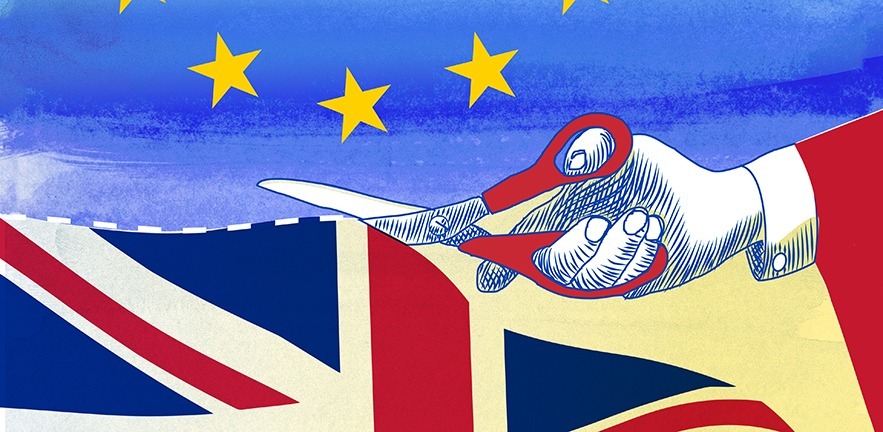By Michael Kitson, University Senior Lecturer in International Macroeconomics at Cambridge Judge Business School


It was a forlorn hope that we would reach peak political deception with the 2016 EU referendum’s Brexit bus, which was emblazoned with the slogan: “We send the EU £350 million a week, let’s fund our NHS instead.” Instead, making things up has become the norm for political discourse. There is now a market for facts where we only buy into the ones we like. And the political parties are now marketeers, often selling us stuff that they cannot deliver.
This blindness to reality was shown recently on an episode of Question Time on BBC One during which an IT consultant criticised Labour’s policy of raising income taxes for people earning over £80,000 on the grounds that it would only affect the top five per cent of earners. He protested that, despite earning more than £80,000 a year, “I am nowhere near in the top five per cent, let me tell you, I’m not even in the top 50 per cent.”
The reality is that an £80,000 a year salary puts you in the top five per cent of earners. But this man seemed blissfully unaware of where he sits in the country’s income distribution – that fact does not matter as much as emotions and aspirations.
Making it up?
Of course, being economical with the truth has a rich and distinguished history in British politics. The manipulation and misinterpretation of data – especially tax and public spending – has been common and widespread. For example, spending that is already allocated gets identified as “new”. Similarly, politicians are obtuse about the time period of new initiatives and use current price data that does not adjust for inflation. Or use total spending, which does not take account of changes in the population (so might sound big but is less when it comes to spending per person).
But we appear to have entered a new phase of making things up – pandering to aspirations and doubling down when confronted with evidence. Nobody apologises anymore.
The Conservative party has promised to build 40 new hospitals – but they are not. They have only committed the money to upgrade six hospitals by 2025. The Conservatives also say they are going to employ 50,000 more nurses in the NHS – but they are not. Around a third of the 50,000 are already working in the NHS.
The Labour party has promised one of the largest expansions of the state since 1945. But it has failed to provide convincing evidence on how this will be paid for. And Labour proposes further spending commitments such as compensating women caught in the pension trap after the increase in the state pension age.
The Liberal Democrats are making it up at the local level with the use of that deceptively dangerous statistical tool – the bar chart. The Liberal Democrats have been using dubious and unrepresentative data in battleground constituencies to suggest that they are the main challenger to sitting Conservative or Labour MPs.
The Liberal Democrats also claim in their manifesto that: “Staying in the European Union will secure a £50 billion Remain Bonus, with the economy two per cent larger by 2024-2025.” This is not a fact, it is a forecast – and for some it is the ultimate dubious forecast as it is a Brexit forecast. For Brexiteers, it is simply more from “project fear”. But flawed economic forecasts may be more useful than empty promises even if, as Conservative politician Michael Gove puts it, “we’ve had enough of experts”.
The Remain bonus
The £50 billion Remain bonus estimate is based on how much the UK economy would grow if it stayed in the EU, compared to the lower growth expected with a Brexit deal. The Lib Dems used forecasts from the Institute for Fiscal Studies think tank and there are many other forecasts which provide different estimates. But the vast majority show that Brexit will harm the economy.
It should be emphasised that there is a lot of uncertainty about economic forecasts. They depend on the assumptions made by the forecaster; economic models are more reliable in the long-run (such as the next 10 or more years) than they are in the short-run (the next few years); and forecasting the impact of unique events (such as Brexit) is very difficult.
So, are the Lib Dems correct? Well, their Remain bonus is not a fact, and as they are promoting a forecast they can be accused of spurious precision. But they are correct to indicate the strong likelihood that Brexit will damage the UK economy. It will discourage firms from entering or remaining in the UK; the prospect of reduced immigration may damage the labour market and hinder innovation; and trade will be disrupted until new trade deals are in place.
Estimating the precise impact of these changes is difficult. But it is responsible to talk about the strong possibility that the UK economy will be smaller outside of the EU than it would be within it. This means comparatively lower wages, profits and tax revenue, which is needed to pay for hospitals, police officers, schools and other important public services.
Economic forecasts are flawed and their limitations should be acknowledged. But they should not be blindly dismissed as fake facts. And as far as political debate and discourse is concerned, in the long run, the truth may will out.
Then again, as the famous economist John Maynard Keynes observed, “In the long run we are all dead”.
This article was originally published in The Conversation, which included the following disclosure statement:
Michael Kitson has received funding from BIS, HEFCE, EPSRC, ESRC, AHRC, NERC and the MRC.

